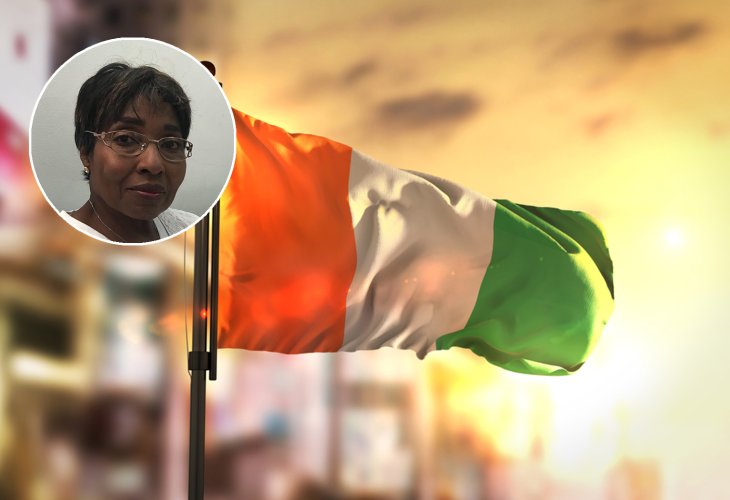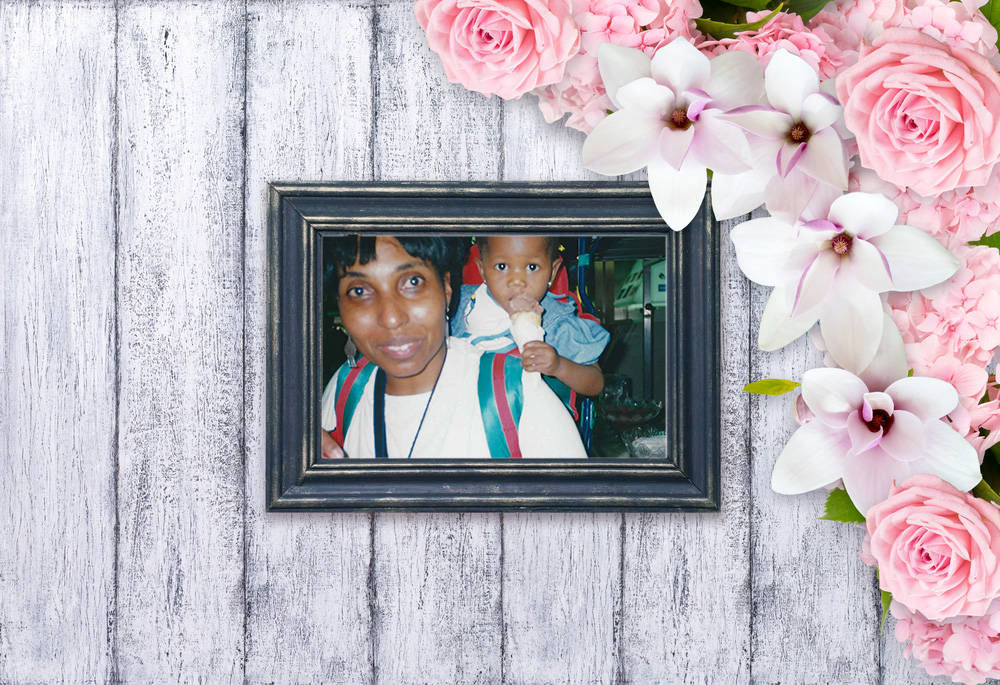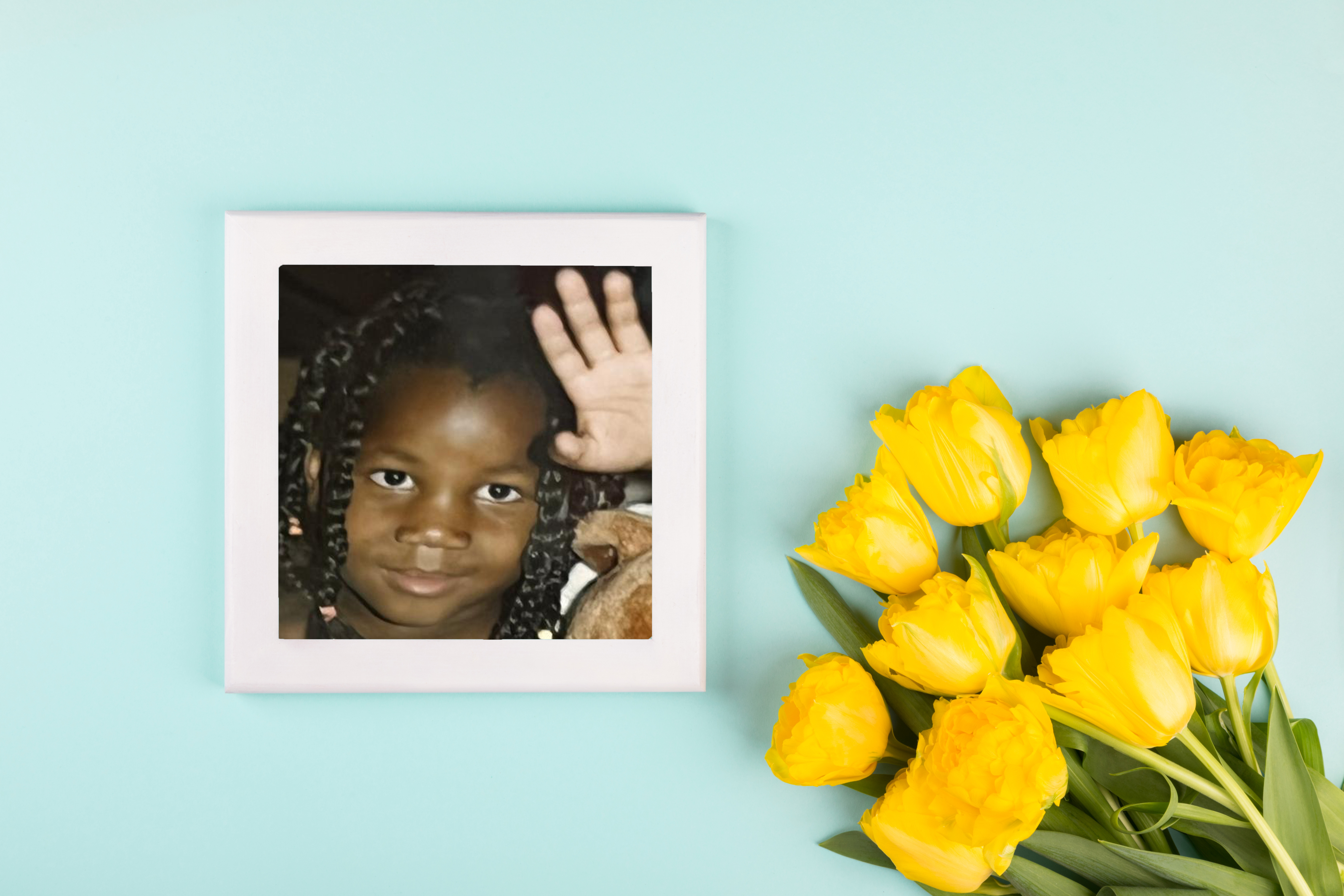A Mother's Miracle: Adopting Against All Odds in Ivory Coast
In a heartfelt interview, Shifra Achi-Tov-Yakir shares her journey of adopting a daughter from Ivory Coast amid civil unrest. Her message is clear: “You can overcome any obstacle.”
 Inset: Shifra Achi-Tov-Yakir (Background image: Flag of Ivory Coast. Credit: Shutterstock)
Inset: Shifra Achi-Tov-Yakir (Background image: Flag of Ivory Coast. Credit: Shutterstock)When Shifra Achi-Tov-Yakir set off for the Ivory Coast, she had one goal: to adopt a little girl. Her suitcase was meticulously packed with all the necessary paperwork, and she expected the process to take just a few days. But there was one situation she hadn't anticipated: a civil war.
Born in Columbus, Ohio, Shifra Achi-Tov-Yakir is now a resident of Jerusalem. Her story is filled with emotion and tension. On one side, it’s a personal and heartfelt quest to fulfill a dream, yet on the other, it presents endless challenges.
"Soldiers with Drawn Weapons Everywhere"
Welcome to Ivory Coast, circa 2001—a year marked by one of the country’s most turbulent times with hundreds of civilians killed in the streets. The scene that greeted Shifra when she landed at the Houphouët-Boigny International Airport is one she'll never forget: "I stepped off the plane, and rows of soldiers lined the runway, pointing their weapons at us," she recalls. "I quickly made my way to the terminal, joining the long passport control line. Soldiers surrounded us on all sides, scrutinizing each passenger. They gestured some to the left, pulling them aside; others to the right, escorting them away."
You describe a selection process reminiscent of darker times in history.
"Correct," she confirms. "I began trembling, not knowing what to do until I suddenly heard voices behind me speaking Hebrew. Initially, I thought the stress was causing hallucinations, but then I heard the word *shalom*. I turned around and saw an Israeli diplomat from the Ivory Coast embassy, whom I’d contacted before. He signaled me not to speak to him and advised against speaking Hebrew here at all.
"After a long wait, I finally reached the terminal exit. Standing by the luggage carousel, I was stunned to see all the bags were torn apart, and soldiers were helping themselves to whatever they fancied. My phone was stolen from my suitcase, leaving me unable to contact the foster family. I took my battered suitcase, unsure of where to go, when suddenly the child's uncle appeared and drove me away."
Originally, Achi-Tov-Yakir planned to stay at a local hotel in the capital, Abidjan. But due to the incident and delay at the terminal, she couldn't make it there. "The child's family invited me to their home, and we drove toward the old neighborhood where they lived. I can't forget the countless soldiers roaming the streets with weapons drawn, causing us to circle about to avoid them."
"Your Child Has Malaria"
Achi-Tov-Yakir traveled to the Ivory Coast to adopt a 1.5-year-old girl whose father had vanished, leaving her with her mother. "It was around 2 AM," she recalls the first arrival at the family's home with emotion. "The nanny quietly approached and placed the little girl in my arms. I began to cry. I had waited so long for this moment, and now—I'm a mom. I held her tightly and didn't let go all night.
"Throughout the night, I noticed the child's body was covered in mosquito bites. I thought they were natural and would pass. But the next morning, when she woke up, her skin had turned a light yellow. I began to feel something was terribly wrong with her."
Still, Achi-Tov-Yakir didn't suspect the girl had malaria, a common infectious disease in Africa. "I rushed to the hospital, handed the child to the doctor, and urgently said, 'Look at her hands and feet, they’re yellow.' The doctor looked at me, then at the child, and delivered a line I'll never forget: 'Your child has malaria and is at death’s door. It will be a miracle if she survives another day or two.'
"I was overwhelmed with fear. We immediately began a series of tests and medical treatments to stabilize her grave condition. Several days later, the doctor called and said, 'Your child is safe, but understand, she had enough malaria to kill an adult.'"
No Visa
Achi-Tov-Yakir planned her return to Israel through France, as she had on the way there. "Since there's no direct flight from the Ivory Coast to Israel, my only way back was with a visa from another country with international ties with Israel," she explains. "I tried to get a visa via the French embassy. Due to the complex security situation, many citizens came daily to apply for a visa, making the line long and slow-moving. I visited the embassy daily and even paid to move up the queue, but I couldn't obtain a visa.
 Nasia's First Hours in Israel
Nasia's First Hours in Israel"After exhausting days of unsuccessful attempts, I started seeking another way. I went to the Swiss embassy, but they informed me that I needed to buy flight tickets first and only then would we receive visas. I purchased the tickets and returned to the embassy, but they reversed their decision, saying they couldn't issue a visa."
Achi-Tov-Yakir continued her search for an embassy willing to grant her and her daughter a visa to Israel. Just before giving up hope, she reached the Dutch embassy, where they were granted visas. "When I first came to the Ivory Coast, I was sure the whole process would take no more than ten days, but it took me two months."
"I Saw the Corpses of Dead Civilians"
Throughout those long days and nights in the Ivory Coast, Achi-Tov-Yakir found herself caught in the throes of a severe civil war, witnessing the turmoil of a governmental coup. "One evening, we were all sitting inside the house, when suddenly gunfire erupted outside. Everyone got up nervously, saying 'The war has started.'"
What did you do at those moments?
"I was in constant contact with the Israeli embassy in the country. During those moments when the war broke out, the ambassador personally called me, asking where we were to come and extract us."
Achi-Tov-Yakir describes the war’s horrors: "I’ll never forget the drive from the capital Abidjan to the city where my daughter’s family lived. Along the entire way, I saw the bodies of dead civilians strewn along the roadside."
In the city where you stayed, did you feel the war in the air?
"Of course I did. There were endless shootings in the street, and we closed windows and stayed indoors."
How did the war affect the adoption process and you personally?
"Honestly, I felt like I was watching some horror film from the side. I saw crowds of soldiers with drawn weapons on the streets, but I didn't dwell on it. My main thought was the well-being of my daughter."
A Miracle Child
After a long and arduous journey in the Ivory Coast, Achi-Tov-Yakir and her daughter landed in Israel. "When we exited the plane, I looked around and said to my daughter, 'This is Israel, we’ve made it home. There are people who wanted so much to reach here and couldn’t, but we did it.' Those were incredibly emotional moments, and I burst into tears of joy and gratitude to Hashem."
Shortly after their arrival in Israel, Achi-Tov-Yakir’s daughter underwent an Orthodox conversion as per Jewish law. She followed a religious curriculum at traditional educational institutions, with a touching photo depicting her holding her first siddur.
In response to how she would sum up her bold and emotional journey in one word, Achi-Tov-Yakir replies: success. "First of all, we're in the land of Israel, which is our home," she adds with excitement. "Both my daughter and I feel secure living in Israel. We are filled with joy for the privilege we have."
In closing, what message would you like to share with the readers?
After a moment of silence, she responds: "We must believe in Hashem and always seek the best way to live. We will always face difficulties and obstacles, but we can overcome everything."
"My daughter's name is Yisca-Nasia," says Achi-Tov-Yakir in conclusion. "Yisca named after our matriarch Sarah, and Nasia meaning Hashem’s miracle. I gave her this name even before meeting her, but after all the tremendous miracles that happened to her, I understood the divine providence in naming her so."
 Yiska Nasia in her childhood
Yiska Nasia in her childhood
